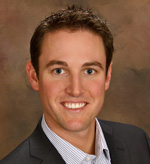The Way High Net Worth Individuals Think About Philanthropy is Changing
Philanthropy has always been a major component of financial planning for many wealthy families. In the past, it was common to set up a trust or a foundation to conduct such philanthropic activities in a tax-exempt manner. These entities, however, are susceptible to increased scrutiny from other governmental agencies. For this reason, a new breed of billionaires has started to emerge with a new way of thinking about how to involve themselves in philanthropic causes with less headache.
The Emergence of Charitable LLCs
One such endeavor by Facebook founder Mark Zuckerberg and his wife Dr. Priscilla Chan made headlines when the two structured their philanthropic organization, the Chan-Zuckerberg Initiative, as a privately held limited liability company (LLC). They weren’t the first billionaires to set up their charitable organizations in this way. Chan and Zuckerberg’s initiative follows the footsteps of such charitable entities as the Emerson Collective, founded by Steve Jobs’ widow, and the Omidyar Network, founded by eBay founder, Pierre Omidyar and his wife, which are both set up as charitable LLCs instead of nonprofits.
A charitable LLC is legally no different from a for-profit LLC, which means it is governed only by applicable corporate law. A nonprofit foundation or trust, on the other hand, would be subject to further state nonprofit statutes and additional oversight by attorneys general and the IRS. With an LLC, although the entity is subject to federal and state taxes, there are no restrictions on donations, investments or income. There are also lighter restrictions on political activities than governing charities, allowing for more flexibility within the organization. In fact, the owner of the charitable LLC has almost complete flexibility to change the LLC’s mission or projects at any time. The LLC also provides a veil so that it is more difficult to see how much money was donated or utilized in a given year.
Millennials Embrace New Philosophies of Giving
Not only are the new ways of structuring philanthropic causes changing, but the number of new donors among the Millennial generation is also changing. According to CAF America, as the philanthropic landscape undergoes a transition, the profile of donors is also shifting as more and more Millennials are making significant donations and funding various charitable projects.
The way Millennials give is also a departure from Baby Boomers’ style of giving. While Baby Boomers have traditionally zeroed in on organizations or philanthropic causes that hit close to home, Millennials are more broad in their charitable approach. Many Millennials, including Facebook co-founder Dustin Moskovitz and his wife, embrace a charitable philosophy known as “effective altruism”, which is the belief that donors should give to causes where the greatest positive impact can be achieved through one’s donation.
Few Millennials Consult Financial Advisors Before Giving
While it is encouraging to foretell the generosity of the next generation, one point of concern, however, is that only 47% of multimillionaires aged 18 to 34 consult a financial advisor before making philanthropic decisions, according to a report by U.S. Trust. Even of those who do use a financial advisor, only a small percentage reported discussing philanthropic activities with them.
This is concerning because there are various ways to structure entities or donate funds to charitable causes that can have a tremendous effect on your tax burden for the year. By failing to limit your tax liability, even someone with the best intentions may have less to give to the causes they believe in each year. One simple example is offsetting charitable contributions against other capital gains to reduce future tax burdens. If you don’t consult a wealth advisor on issues like these, they won’t be able to help you implement this strategy to save money on your taxes, allowing you to give more to the causes you care about most. An open line of communication with your financial advisor is crucial, particularly when it comes to donating your wealth to causes that are close to your heart, so you can maximize your charitable impact.










